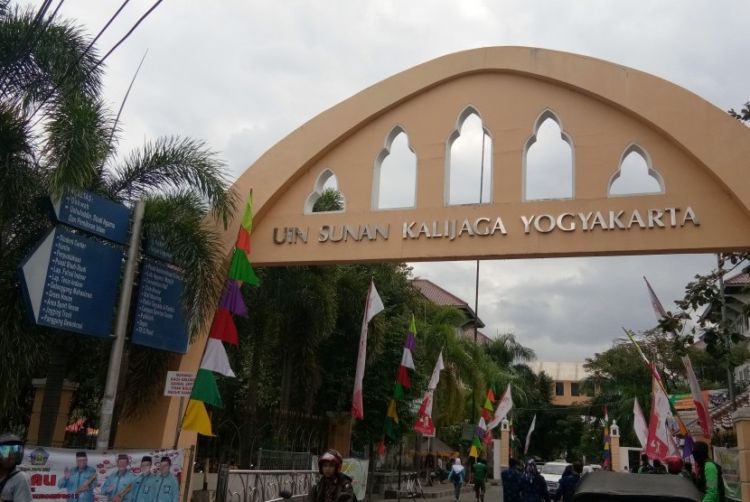Up to the present, knowledge was divided into two parts. These have been confronting each other for years. Previously, the primary source of those parts was not the same. The first part is inspired by natural science, and another part is by religious doctrine. Some people may judges sometimes that religious knowledge is superior to non-religious knowledge. In that problem, I will mention one name that attempts to reconcile these two paradigms he is Amin Abdullah.
From my perspective, Amin Abdullah has built an emotional relationship with Sunan Kalijaga Islamic State University(UIN Sunan Kalijaga). Many people call that university UIN Suka or only UIN has two campuses. Many students call them west and east campuses. However, you will find one building on the east campus, Prof. Amin Abdullah. That is a multi-purpose building (MP). Many events have been done in there. I think UIN have entitled that building as an honour to Amin Abdullah because he had successfully brought Sunan Kalijaga Campus from State Islamic Institute (IAIN) to State Islamic University (UIN).

Amin Abdullah was born in Pati, East Java, Indonesia, on the 28th of July 1953. He had done the study at Darussalam Gontor Islamic Boarding School—as known as Pondok Modern Gontor—in 1972. Then continued his study at the same alma mater. He had become UIN’s rector from 2001 until 2010. After Amin Abdullah had completed the rector desk, he became UIN’s icon because the base fundamental of UIN has adopted his integration-interconnection paradigm.
Thus, the relationship between religious and non-religious knowledge is more stressful. Consequently, many scholars have attempted to reconcile. Firstly, some scholars try to describe that religious knowledge and scientific knowledge have their sections. Secondly, some other scholars attempt to reconcile and form a middle road between religious and scientific knowledge. Amin Abdullah has been included in this front. He tries to reconcile two knowledge sections. To summarise, we will see Amin Abdullah’s argument and main idea of the integration-interconnection paradigm.
Islamic Knowledge Position
Indonesia is a state which has many Islamic Boarding Schools—as known Pondok pesantren. Those guided us that Indonesia had built a sensational relationship with Islam. Earlier, before Islam became a majority religion, we knew that Buddha and Hinduism before had become majority religions. Although, after Buddha and Hinduism dominated, Islam became the majority religion in Indonesia. Pesantren is an institution which attempts to defend Islamic doctrine in this country. Therefore, many people have seen Islamic doctrine or knowledge superior to something else.
Amin Abdullah might want to implement his paradigm in a middle crisis of knowledge dichotomy. That paradigm aims to experiment to reconcile the chaos between the two paradigms. He describes three entities has been relevant to the integration-interconnection paradigm. These are hadarah an-nash (the textual culture), hadarah al-falsafah (the philosophy culture) and hadarah al-ilm (the scientific culture). Dewi Masyitah dan her friends has demonstrated that Amin Abdullah’s idea is similar to Jabiry’s epistemology. We know Abid al-Jabiry (a Muslim thinker from Marocco) has divided Islamic epistemology into three entities too; Burhani (logical epistemology), Bayani (textual epistemology), and Irfani (mystic epistemology).
We may have to adopt or spread Amin Abdullah’s ideas in the final analysis. We needn’t regard the knowledge dichotomy as a simple problem. Because by the next century, the era will force us to have a piece of comprehensive knowledge. That is a reason why we must have a broad perspective. Therefore, integration-interconnection, which Amin Abdullah builds, is relevant. This paradigm doesn’t adopt a dichotomy; religious and non-religious knowledge have complemented each other. Some scholars have seen this paradigm as an alternative in the middle confronting two knowledge sections.








